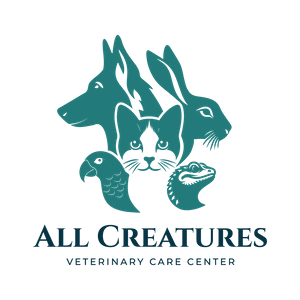The allure of exotic pets is undeniable. From slithering serpents to fluffy chinchillas, these unique creatures can captivate our hearts and bring a touch of the extraordinary into our homes.
But before you embark on this exciting journey, it’s crucial to understand the responsibilities and realities of exotic pet ownership. This article, written from the perspective of veterinarians, will explore the top reptile, pocket pet, rodent, and avian breeds and species for adoption, exploring their care needs, legal considerations, and the kind of person who might be the perfect match for each.
Reptiles
-
Leopard Gecko
Docile, low-maintenance leopard geckos are ideal for beginner reptile enthusiasts. They thrive in relatively simple terrariums with proper heating and lighting, and their insect-based diet makes feeding manageable. Their calm demeanor and striking patterns make them captivating companions. -
Bearded Dragon
Slightly more demanding than leopard geckos, bearded dragons require larger enclosures with varied temperatures and basking areas. Their omnivorous diet includes vegetables, insects, and fruits. However, their intelligence and playful personalities make them rewarding companions for dedicated owners.
.jpg)
Pocket Pets
- Hedgehog
These adorable insectivores are surprisingly social and interactive. They require spacious enclosures with climbing structures and enrichment activities. Their nocturnal nature and prickly exteriors might not suit everyone, but a hedgehog can be a quirky and charming companion for the right person. However, hedgehogs are not legal in all states. - Chinchilla
These soft-furred rodents are known for their dust baths and playful personalities. They require spacious cages with dust baths, chew toys, and exercise wheels. Their fur needs regular dust baths and occasional brushing, making them unsuitable for allergy sufferers. Chinchillas can live for 10-15 years, so commitment is key.
Rodents
- Degus
These social South American rodents thrive in pairs or trios and require large, complex enclosures with climbing opportunities and digging substrate. Their intelligence and playful nature make them engaging companions, but their vocalizations and nocturnal habits might not be for everyone. Degus also have specific dietary needs, including fresh vegetables and hay. - Rats
Often overlooked as pets, rats are highly intelligent, social creatures. They require roomy cages with enrichment activities and regular playtime. They also do best in pairs or small groups. Their friendly personalities and trainability make them surprisingly rewarding companions. However, their short lifespans (2-3 years) require emotional preparation.
Avian
- Budgies
These cheerful, social birds are perfect for apartment living. Budgies require large cages with toys and daily interaction. Their melodic chirping and playful personalities can brighten any home. However, their noise levels and potential mess might not be ideal for everyone. - Cockatiels
Slightly larger than budgies, cockatiels are intelligent and affectionate birds. They need big cages with climbing opportunities and regular interaction. Their playful behavior and ability to mimic sounds can be endearing, but their vocalizations and need for attention might not suit everyone.
Beyond the Top Picks
While the species mentioned above represent excellent choices for hopeful exotic pet parents, there's a whole world of fascinating creatures waiting to be discovered.
.jpg) Exotic Pet Care Considerations
Exotic Pet Care Considerations
Beyond breed and species specifics, remember that all exotic pets have unique needs. Thorough research is crucial before welcoming any animal into your home.
Here are some general care considerations:
- Habitat: Each species requires a specific enclosure size, temperature, and humidity levels. Invest in proper equipment and maintain a clean environment.
- Diet: Research the dietary needs of your chosen species. Provide a balanced diet and provide access to fresh water.
- Veterinary Care: Find a veterinarian experienced in exotic pet care for regular checkups and medical needs.
- Socialization and Enrichment: Many exotic pets require regular interaction and mental stimulation. Provide toys, activities, and handling opportunities.
Legal Considerations
Owning an exotic pet comes with legal responsibilities, too. Research and adhere to all local and state regulations regarding specific species. Some areas might require permits or have restrictions on ownership. Responsible pet ownership includes ensuring the legality and welfare of your animal.
The Right Person
Matching the right personality to the right pet is crucial for success. Consider your lifestyle, experience, and commitment level before choosing an exotic companion. Some species require more attention and specialized care than others. Be honest with yourself about your ability to provide a lifetime of responsible care.
Additional Tips for Responsible Exotic Pet Ownership
Support ethical breeders and rescues. Avoid purchasing animals from unknown sources or wild-caught ones. Never release exotic pets into the wild. This can be harmful to both the animal and the local ecosystem. Consider adopting older animals. Senior exotic pets often need homes and can make wonderful companions. Prepare for the unexpected. Exotic pets can have unexpected health problems, so ensure you have access to specialized veterinary care. Enjoy the journey! Owning an exotic pet is a unique and rewarding experience. Appreciate the special bond you share with your extraordinary companion.
By following these tips and approaching exotic pet ownership with responsibility and respect, you can create a fulfilling and enriching relationship with your chosen creature. Remember, exotic pets are living beings deserving of our care, commitment, and understanding.
Final Thoughts
Owning an exotic pet can be a deeply rewarding experience. You can build a thriving and enriching relationship with your unique companion by choosing wisely, providing proper care, and abiding by local laws. Remember: exotic pets are not low-maintenance accessories. They are living beings with specific needs and deserve our respect and commitment.
If you have questions and you'd like to reach out to us, you can call us directly at (856) 256-8996, or you can email us at [email protected]. Don't forget to follow us on social media Facebook, Instagram.
